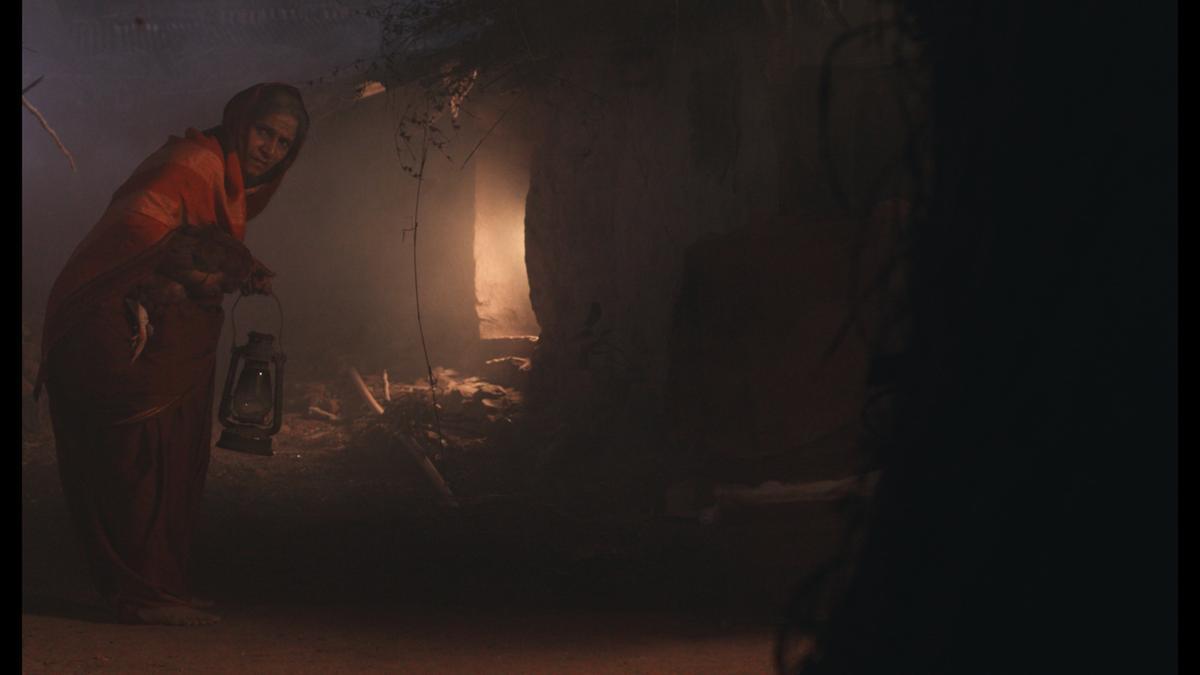
The strikingly original Kannada short film, Sunflowers Were the First Ones to Know (2023), represents a bold step for emerging Indian filmmakers as it takes center stage at the prestigious Cannes Film Festival. Helmed by the gifted Chidananda S Naik, the film is set to be featured in the esteemed La Cinef section, a segment of the festival specifically dedicated to highlighting the brilliance of worldwide film schools and the prodigious talent within them. This 15-minute cinematic piece, part of Naik’s capstone project at the Film and Television Institute of India (FTII), joins a lineup where a jury will honor selected works with La Cinef awards at the Bunuel Theatre, with the ceremonies slated for May 23.
The film is woven with the threads of mystery and rural lore, capturing the tale of an elderly woman whose theft of a prized rooster throws her village into chaos and darkness – a metaphorical and physical quagmire that the villagers are desperate to escape. With a narrative set exclusively under the cloak of night, the film achieves a chilling ambiance of mystery and intrigue. Suraj Thakur’s adept hand at cinematography, Manoj V’s precise editing, and Abhishek Kadam’s immersive sound design come together to create a polished, suspenseful production that urges viewers to ponder the curious case of the missing bird, the sun that has vanished, and the fickle nature of fate.
Chidananda S Naik’s route to storytelling was not one of sudden revelation, but rather, a gradual ascent fueled by an accumulation of transformative experiences. The seeds of his passion for cinema were sown in his childhood, cultivated by the powerful imagery of Akira Kurosawa’s Dreams. His creative ambitions further germinated during the bloom of a new wave of Kannada cinema a decade ago, with boundary-pushing works like Lucia by Pawan Kumar, projects by Rakshit Shetty, and thrilling narratives such as Rangitaranga coming to the forefront. Born in Karnataka, the vibrancy of this cinematic upheaval greatly influenced Naik, guiding him to admit revered filmmakers such as Girish Kasaravalli and Girish Karnad. Numerous conversations about movies opened his eyes to an all-encompassing universe of storytelling, one he longed to explore in more profound depths.
Yet, it wasn’t until Naik pursued a career in medicine that he felt the undeniable pull towards filmmaking. The medical field exposed him to the fragility of life and its stark rawness. Enveloped by honest human interactions at the crossroads between life and death, Naik found resolve in his pursuit of self-discovery and artistic expression, shifting from a caregiver of the human body to a creator for the human soul.
Drawing inspiration from a Kannada folktale close to his heart since early years, Chidananda molded his dream into reality through Sunflowers Were the First Ones to Know. Interestingly, though the story was well-known within Karnataka, he discovered it was largely unfamiliar to those beyond the state’s borders. Naik envisioned converting India’s rich mythological repository into mesmerizing film experiences, and this short film appeared to be the ideal starting platform for such an ambitious journey.
Sunflowers Were the First Ones to Know centers on the grandiose concept of fate, a timeless question that transcends cultures and is reflected in myths worldwide. The challenge, as Naik discerned, was the unbalanced awareness and appreciation of Indian folklore compared to that of Greek mythology and other international narratives.
The making of the film was not without trials; with a constrained timeline of four days and limited resources, the film’s night shoots in complex geography tested the resolve of the compact crew. Transporting equipment and sheer exhaustion were constant companions, but a shared passion for storytelling propelled the team toward completion.
As Chidananda prepares to grace Cannes on May 12, he regards this as not just a personal triumph but a guiding beacon for filmmakers back home in Karnataka, projecting a future where more Kannada films bask in the international limelight. He finds motivation in the successes of cinematic masters who encountered Cannes early in their journeys, setting benchmarks for global recognition. In the shadow of Quentin Tarantino, Francis Ford Coppola, and Bong Joon-ho, Naik envisions a world where Indian filmmaking stands alongside the greatest,ss projecting powerful tales that resonate universally.












